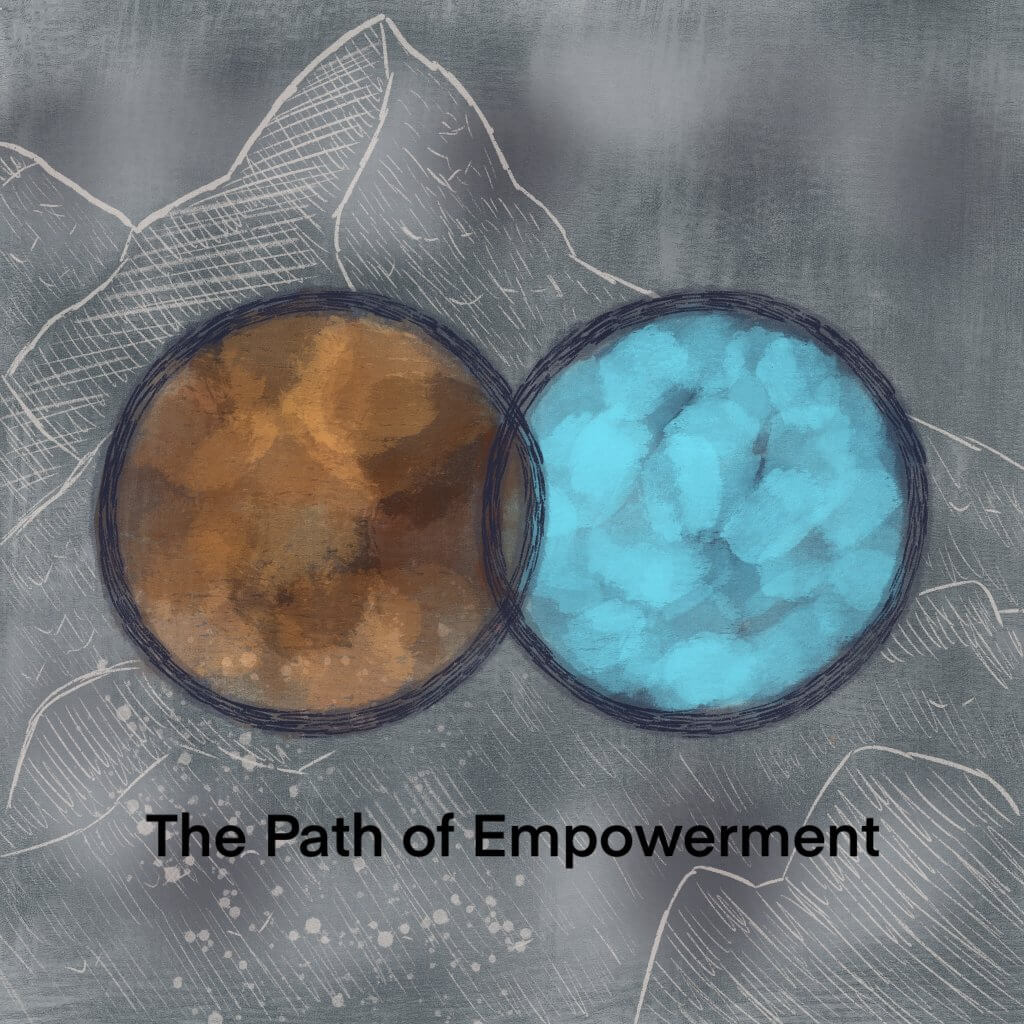There was once a little boy. He looked out his window, jaw dropped, wondrous at the amazement of life. He started crying. Life was so beautiful, so confusing, so complex, so mysterious, so foreign. Why was there anything at all? How was he supposed to live?
“All I want is to be a good person,” he said to himself. “I don’t know what that means yet, but I vow, I pray, I promise – I will be a good person.”
For as long as I (Tasshin) can remember, I’ve had various questions on my heart. What am I doing here? What is this—this life, this universe? Why is there a universe? Why am I alive? How should I live my life?
These aren’t logical, rational questions. They are heart questions, inquiries with true answers that no words can encompass or language can describe. Nor are their answers ones you can look up in a book.
Of course, there are books that discuss ethics, philosophy, spirituality—books that have been very helpful to me in my journey. But there’s no book that contains the answers I was looking for. We aren’t born with manuals specifically for us, that tell us who we are and how we should live our lives, specifically. Part of me wanted a cheatsheet for the different circumstances I found myself in and the problems I faced: “Go to this university, study this major, and make sure to talk to the guy in your second period chemistry 101 class…”
Instead, I had to ask these questions for myself, again and again, searching for answers on my own, testing the answers I found against the circumstances of my life.
Here’s one answer I found: the idea that everyone is a vow. My teacher, Soryu Forall, introduced me to the concept of a vow1Forall’s use of the word translates the Mahāyāna Buddhist concept praṇidhāna (Sanskrit) or the Japanese 誓願 (seigan).. He describes a vow as “our most authentic and kind life… Our purpose in life isn’t just what we want to do; our purpose in life isn’t just what others want us to do. Our purpose in life is the place where what we want and what others want meet.” (Maple Seeds)

The way Soryu presented what a vow is felt meaningfully different to me from other ideas about what a life purpose or calling is. Importantly, there wasn’t some pre-destined mission assigned by God that I had to accomplish, or else. That framing on a life purpose felt overwhelming and scary. I doubted myself, and assumed that I would automatically fail to complete my life’s purpose.
But a vow isn’t a pass-fail test, because it’s not pre-destined or fated. Instead, it’s emergent. It emerges from that dance between self and world—your values, dreams, and skills, and the circumstances you find yourself in, the requests the world asks of you.
Accordingly, you have agency and say in what your vow is. You can choose to go in this direction, and not that direction. You can decide to serve the world in this way rather than that way. And when you encounter difficulties or setbacks, you can learn from your experience and try something anew with the lessons you’ve learned.
Everyone has a vow. To my understanding, what a vow is is your life—all of the actions you take, and the effects of those actions. Therefore, because you are alive, you have a vow. You simply will take actions, and those actions simply will have effects.
This way of seeing2I borrow the term way of seeing from Rob Burbea: “a way of seeing things forms a lens, one among many, that we can pick up, use, and put down, rather than a final statement about reality” (Seeing That Frees). Ways of seeing can diminish or liberate us from suffering (along the lines of the traditional Buddhist dharmic practices), or increase a sense of meaning, purpose, connection, and beauty (as in Burbea’s Soulmaking Dharma). is the foundation of Empowerment. The way I see it, you and I were born into this life for a reason. We came to this Earth with a purpose. Our lives are gifts we are given, and gifts we have the opportunity to give.
The question, then, is, what actions will you take? What consequences will your life have? What is the gift you are here to give? What is your vow?
U might also enjoy reading the book I wrote on empowerment with my collaborator Mary Bajorek, The Path of Empowerment.
Thank you to Soryu Forall for his teaching about vows. Thank you to the Mahāyāna Buddhist tradition and Peace Pilgrim for their influence on me. Thank you to Gordon Brander for our conversations about this topic, and the nudge to write about it.

